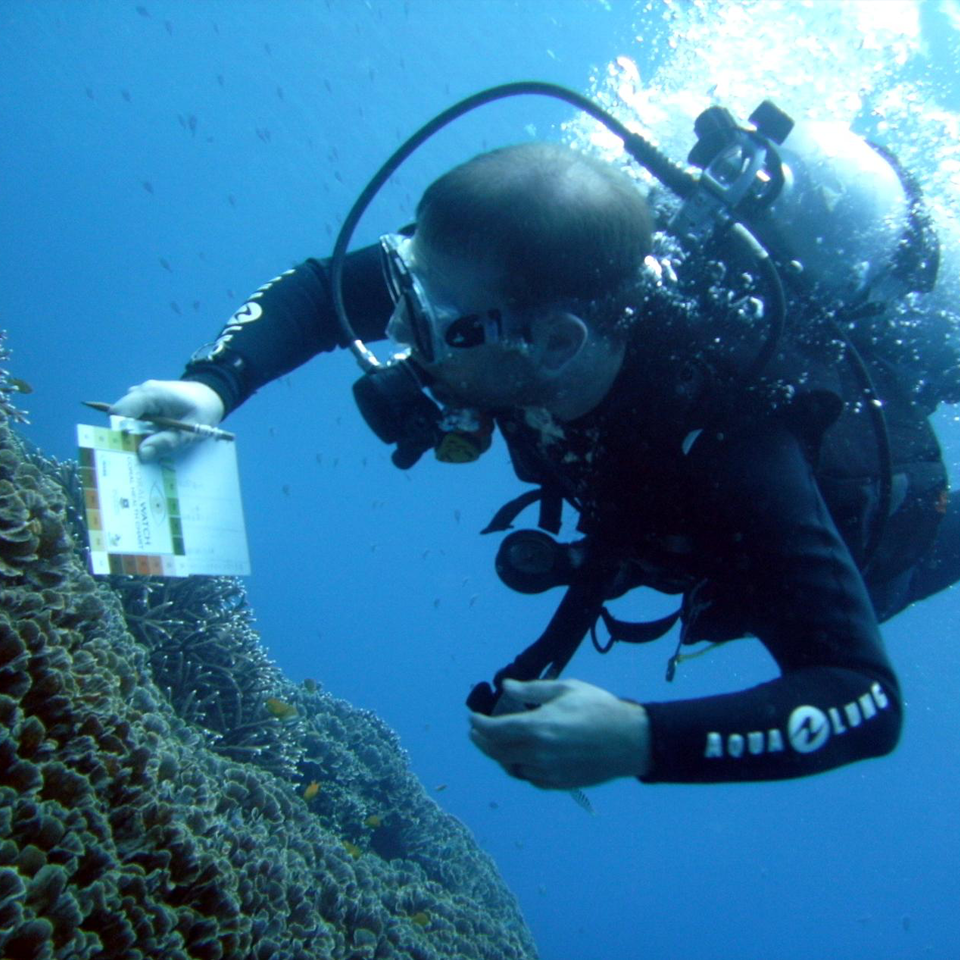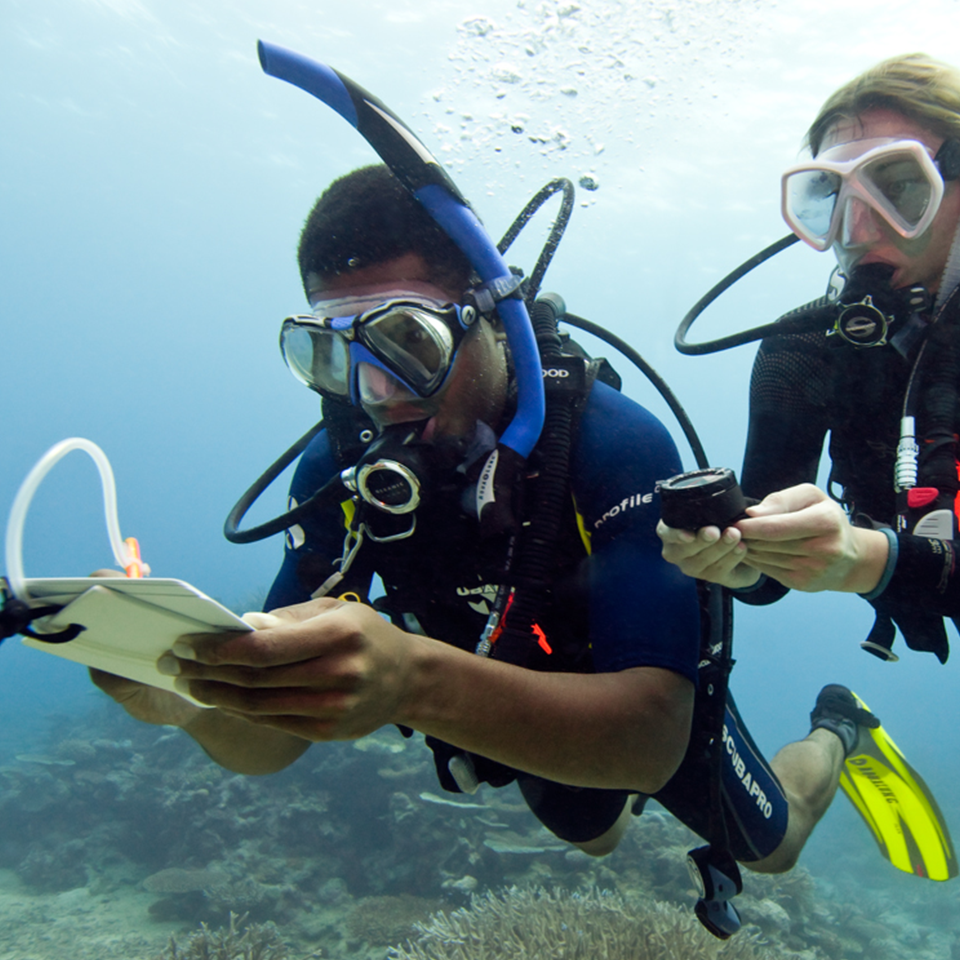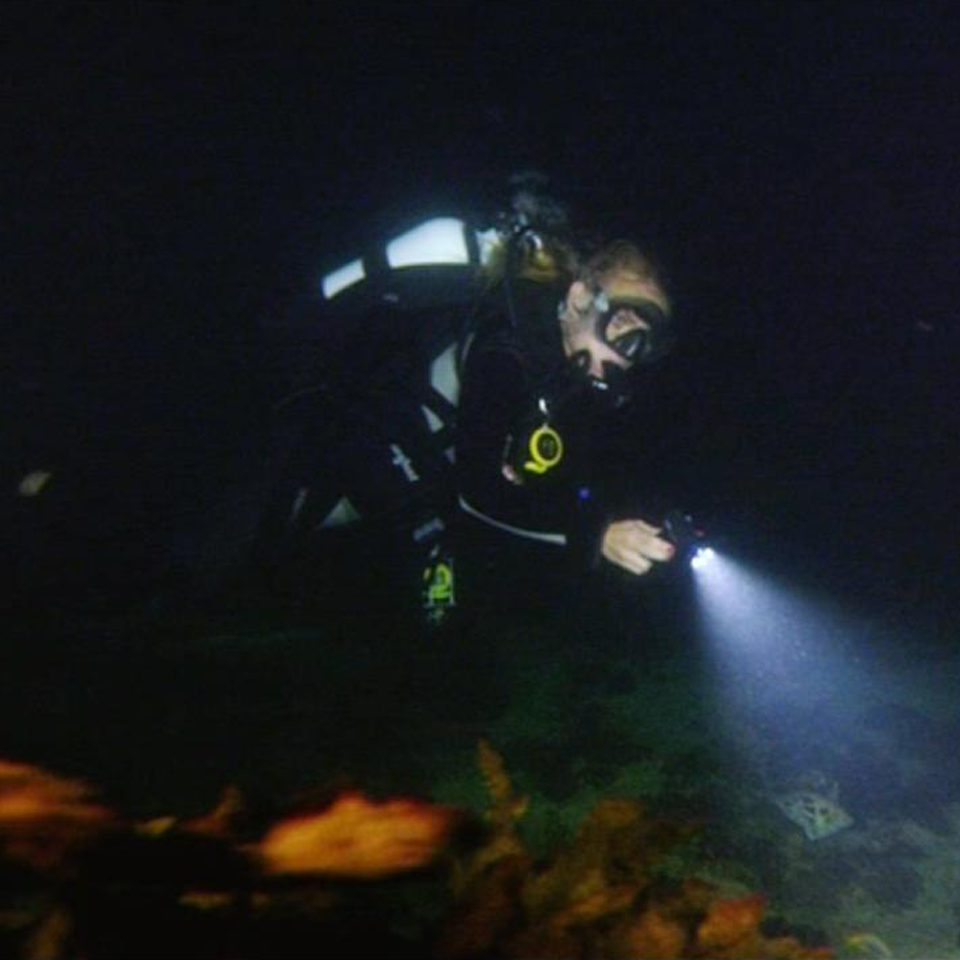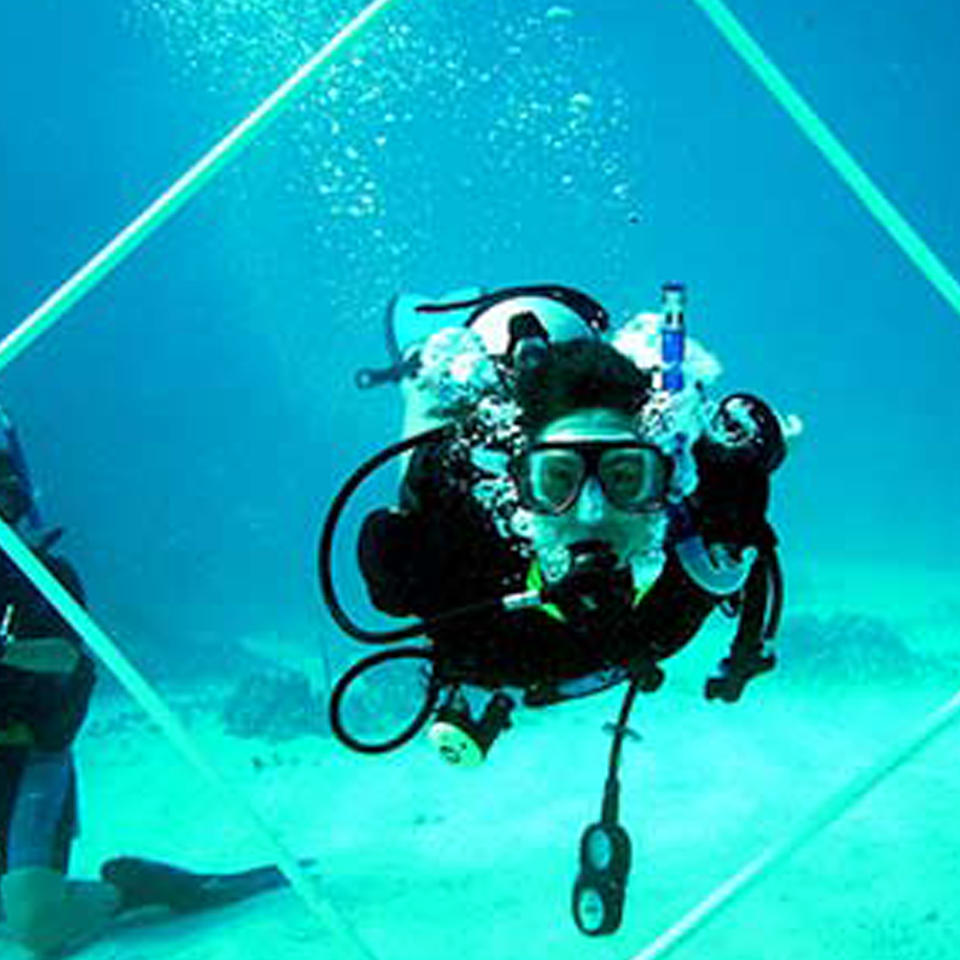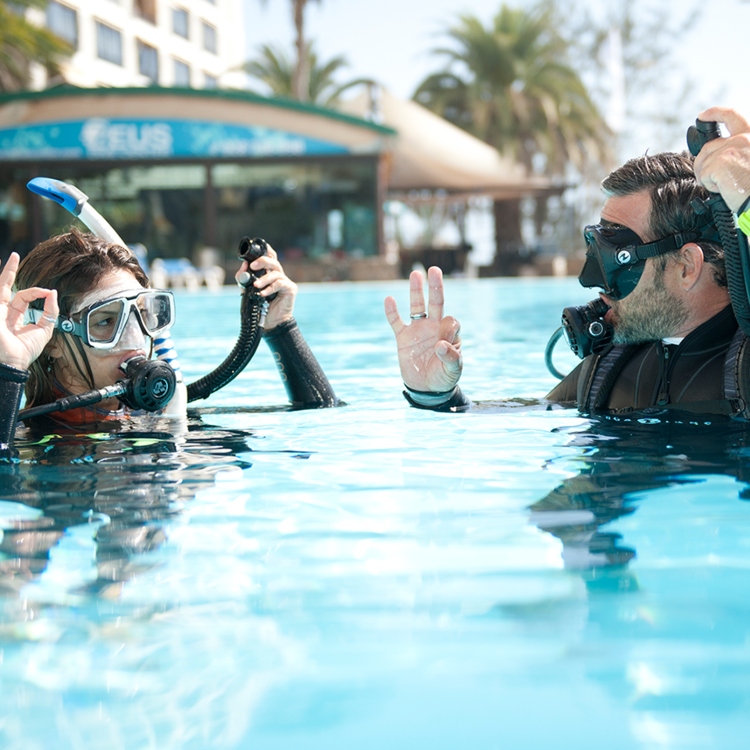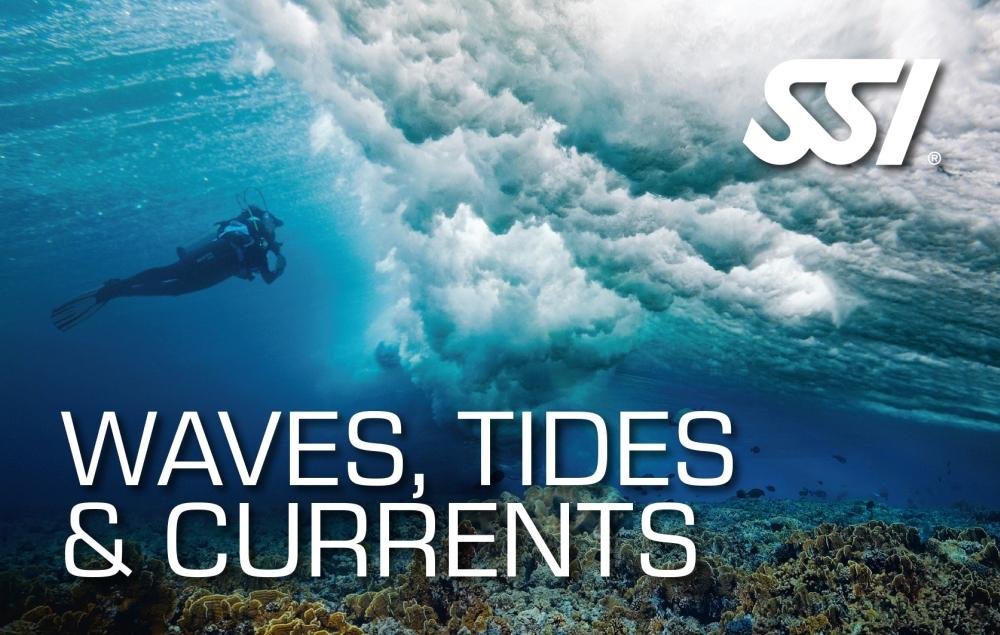Specialty Certifications
Ever wanted to fly? Then the Waves, Tides and Currents specialty is for you. Curious about the critters that come out at night? The Night dive specialty is awesome. Enhance your knowledge of all things diving with Specialty courses! Become a master of the Deep Dive, or become an expert in Navigation or Search & Recovery! From Nitrox, to Diver Propulsion Vehicles, we've got you covered!
Altitude Diver
Imagine descending below the surface of a clear mountain lake to explore a well-preserved wreck. Interested? Any time you scuba dive at an altitude higher than 300 metres/1000 feet above sea level, you're altitude diving. If you’re ready to discover a hidden world where few have ventured, then the Altitude Diver Specialty course is for you....
Boat Diver
Much of the world’s best scuba diving is accessible only by boat. Whether you’ve never made a boat dive or you’ve logged dozens, the Boat Diver Specialty course will benefit you because boats in various parts of the world do things differently. Scuba diving from a boat is fun and relatively easy because you usually descend directly onto your dive site....
Coral IDentification
Everyone likes to scuba dive or snorkel in warm, clear water on a vibrant coral reef, yet many people know little about what they’re seeing or the importance of reef ecosystems. The Coral Identification Specialty course helps you recognize and identify common families of coral species. And teaches you to appreciate the complexity of these habitats and how you can help conserve these vital systems.
Deep Diver
The lure of the deep. There’s something exciting and mysterious about exploring deeper dive sites while scuba diving. Sometimes it’s a wreck that attracts you below 18 metres/60 feet, and on wall dives it may be a giant fan or sponge. Whatever it is, to scuba dive with confidence at depths down to 40 metres/130 feet, you should take the Deep Diver Specialty course....
Photo & Video
Underwater photography is one of the most popular diving specialties, and with so many underwater cameras to choose from, it has become easier and more fun than ever to capture images of your underwater scuba adventures. The Digital Underwater Photo & Video course gets you going quickly, whether you use a point-and-shoot camera or a sophisticated DSLR like the pros. Through hands-on training in the classroom then during a pool dive and guidance from your Professional, trainer you’ll discover: How to choose the right underwater camera system for you, Principles for good composition of underwater images, and Practical techniques to take great photos with your digital camera. ...
Scooter/DPV
More than a fun toy. A DPV aid divers in moving around without limit. DPVs offer a thrilling way for scuba divers to see a lot of underwater territory in a short amount of time. They scoot you through the water allowing you to glide over reefs, buzz around a large wreck or weave through a kelp forest. Whether making a shore or boat dive, a DPV is a great way to see more and have fun doing it....
Dry Suit Diver
Want to stay warm? Want to extend your scuba diving season? Then dive dry. A dry suit seals you off from the water and keeps you comfortable, even in surprisingly cold water. There is incredible diving in the world’s cooler regions and in some areas, conditions are even better in colder months. Becoming a dry suit diver allows you to expand your boundaries and dive more places, more often....
Enriched Air Nitrox
The Enriched Air Nitrox course is the most popular specialty scuba course. Why? Because scuba diving with enriched air nitrox is safer and gives you more bottom time, more energy, more focus. If staying down longer and getting back in the water sooner sounds appealing, then don’t hesitate to become an enriched air diver. During a practical session, you’ll: Discuss managing oxygen exposure. Practice analyzing oxygen content in your scuba tank. Set your dive computer for diving with enriched air nitrox.
Equipment Techniques
Don’t miss a dive due to minor issues with your scuba diving equipment. Whether it's a missing o-ring, wetsuit tear or a broken fin strap, the Equipment Techniques course teaches you basic repairs and adjustments and how to choose, maintain and store your gear properly. You'll also learn more about how your gear works, making you more comfortable with it and better prepared to take care of your investment....
Fish Identification
“What was that fish?” is a common question heard after a dive. If you want to be the scuba diver with the answers, instead of the one asking the questions, then take the Fish Identification Specialty course. You’ll enjoy your dives even more when you recognize the creatures that you see and can identify the main fish families and their characteristics....
Marine Ecology
When you know more about the aquatic environment you plan on visiting, it makes the experience so much more rewarding. Divers are directly impacted by the changing oceans. This course helps understand more about the symbiotic relationships between the plants & animals under the waves.
Navigation
Be the scuba diver everyone wants to follow because you know where you are and where you’re going. The Underwater Navigator course fine-tunes your observation skills and teaches you to more accurately use your compass underwater. If you like challenges with big rewards, take this course and have fun finding your way. You’ll learn the tools of the trade, including navigation using natural clues and by following compass headings. During three scuba dives, you’ll practice: Methods to estimate distance underwater. Compass navigation while making at least five turns. Marking or relocating a submerged object or position from the surface. Underwater map making. ...
Night and Limited Visibility
I believe the Night and Limited Vis course is important. First it increases your skills that can help in other areas of the sport. Second, often people try it without training and have such a bad experience that they will never do it again. Yes, night diving seems mysterious and maybe a bit scary. But at night you drop into a whole new world and watch it come to life under the glow of your dive light. Ask experienced night divers and often they say it is their favorite type of diving. Almost magical.
Perfect Buoyancy
The #1 skill to learn to be a good diver! Excellent buoyancy control defines skilled scuba divers. They glide effortlessly, use less air and ascend, descend or hover almost as if by thought. You can achieve this, too. During your training, you’ll learn how to: Determine the exact weight you need, so you’re not too light or too heavy. Trim your weight system and scuba gear so you’re perfectly balanced in the water. Streamline to save energy, use air more efficiently and hover effortlessly in any position – vertical or horizontal. ...
Search and Recovery
It happens: People accidentally drop things from docks, off boats or even while scuba diving. If you’ve ever lost something in the water and wanted to go find it, then the Search and Recovery Specialty course is for you. There are effective ways to search for objects underwater that increase your chances of success. And there are good and better methods to bring up small, large or just awkward items. Search and recovery can be challenging, but a whole lot of fun. Gathering information and resources, then carefully planning a search are the first important steps you learn. During four scuba dives you’ll practice: Swimming search patterns using your compass and natural navigation. Locating large and small objects using various search patterns. Using a lift bag for large or heavy objects, plus other recovery ...
Sea Turtle Ecology
Sea Turtles are many peoples favorite ocean animal. To see these beautiful creatures underwater is a treat for sure. Like many other ocean animals they are under threat. We can help them if we understand more about them and the dangers they are in.
Shark Ecology
Many humans fear sharks, but is that reputation deserved? By taking the Shark Ecology program, you will learn how sharks and their behavior are often misunderstood, and how you can safely observe them in their natural habitat The goal of this course is to introduce divers to sharks and to educate them on the important role sharks play in a healthy ecosystem. When you love them as we do, hopefully you will join us in our preservation efforts.
Diver Stress Rescue
The Stress / Rescue Diver course prepares you to deal with dive emergencies, minor and major, using a variety of techniques. Through knowledge development and rescue exercises, you learn what to recognize diver stress and how to respond. Plus, the course is just fun – it’s serious, but still allows for lots of laughter in between the focused learning.
Waves, Tides & Currents
Water motion can have a huge effect on your diving. Take control of your dives no matter the conditions with the SSI Waves, Tides and Currents specialty. You will learn all you need to dive safely and comfortably in currents, waves, rivers and from shore.
Wreck Diving
Whether purpose-sunk as an artificial reef for scuba divers, or lost as the result of an accident, wrecks are fascinating windows to the past. Ships, airplanes and even cars are fascinating to explore and usually teem with aquatic life. Each wreck dive offers a chance for discovery, potentially unlocking a mystery or spying something others have missed.



